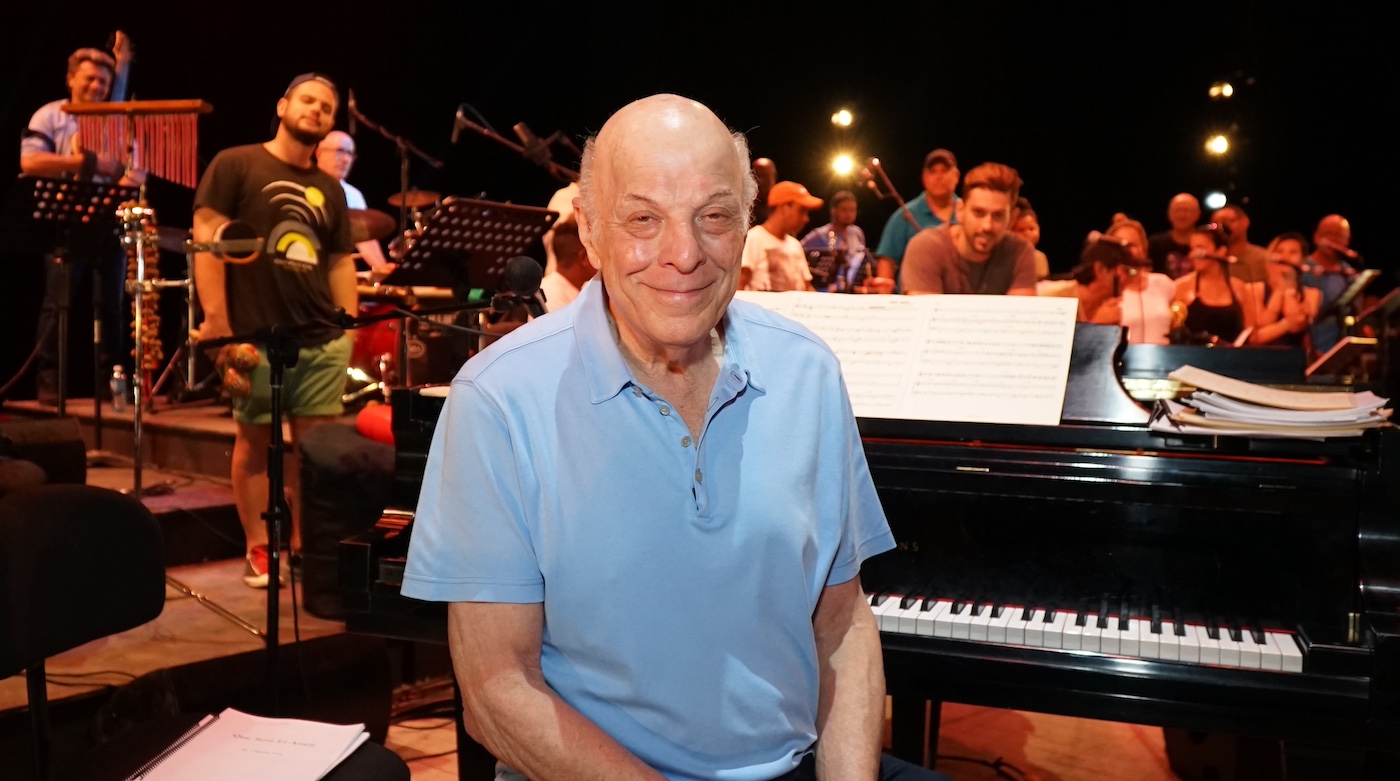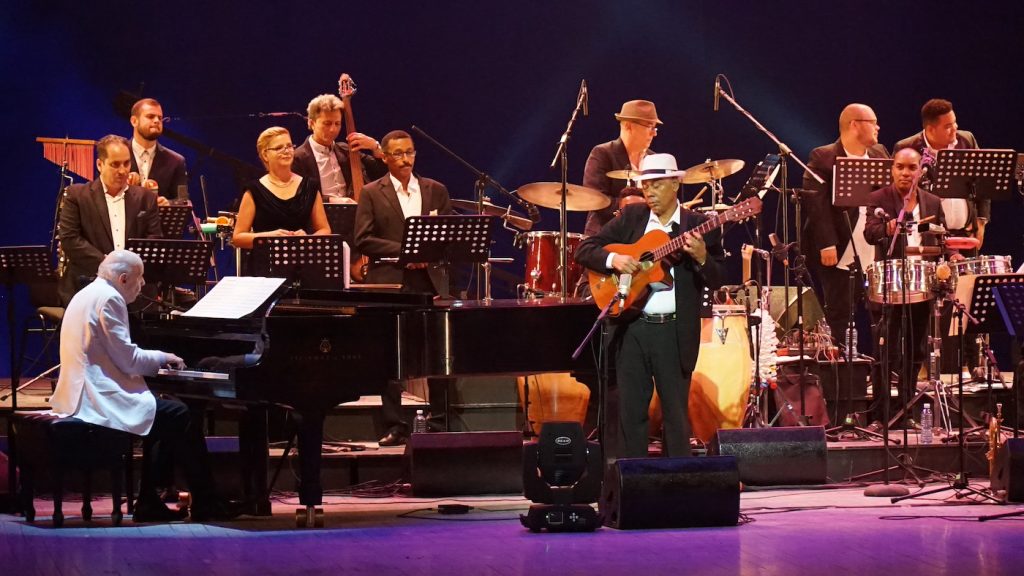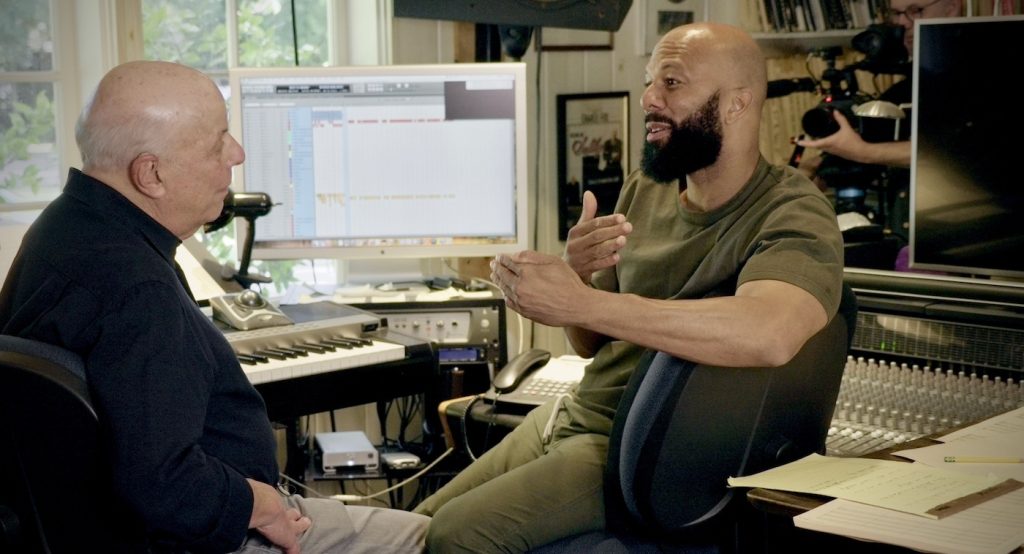
On Friday, April 5, composer Charles Fox was awarded a star on Hollywood’s Walk of Fame in recognition of his remarkable career creating themes for television series like Love, American Style, Happy Days, The Love Boat, scores for more than 100 movies like Foul Playand 9 to 5, and the Grammy-winner, “Killing Me Softly With His Song.” His orchestral compositions include three full-length ballets. His awards include two Emmys, a Grammy, and two Oscar Nominations, and induction into the Songwriter’s Hall of Fame in 2004.
The documentary about Fox’s career, “Killing Me Softly With His Songs,” is now available for streaming on demand. In an interview, Fox talked about falling in love with playing the piano, working with The Cowsills, Jack Jones, and Roberta Flack, the TV theme that became a pop hit, and the one that ocean-going vessels use to communicate.
When did you first know that you were a musician?
I started playing the piano when I was quite young, eight or nine years old. And I can just tell you that when I took my piano lessons, I used to run home to practice. My friends would go to the baseball field or the basketball field to play basketball, and I said, “I’m going to go and practice.” I can’t say when I firmly decided this is what it is in my life, but I know I was very attracted by my fingers hitting the keys and hearing music that sounded in my ears, and that was the start of it. I became a professional musician at age 15. I had my first band in the Catskill Mountains. We went away for two months at a time. We played for dancing and shows. They put on silent movies and I would sit down at the piano and make up things to accompany them. That was a great background for what I did later in film.

And then you studied with one of the greatest teachers of the 20th century, Nadia Boulanger. Were you thinking about a career in classical-style orchestral composing?
I was thinking about going for a classical career. I really had no idea though how, what the future held for me. I knew I just was like a sponge. I was desperate to get information on how you compose music and express what I felt. Now, I also studied jazz. I studied for a year with Lenny Tristano. And when I left Mont Blanc, I went to Columbia University and studied electronic music. So, I’ve always been curious.

What led you away from that?
I really got started trying to earn a living. I began playing in bands and writing music for television, for The Tonight Show.
What was the first TV theme song that you created?
That was Wide World of Sports. There had never been a sports anthology series on television prior, and it was a three-hour show, so they had no idea it would be successful. And it lasted 35 years. And then, two years later, ABC said, “Let’s take another big chance and put football on a Monday night.” They had no idea that women of America would put up with their husbands watching television at night.
You did the theme song for another kind of anthology, Love American Style. How did the Cowsills come to sing that theme?
I suggested The Cowsills. I came out to California to do a movie called Goodbye Columbus. When I finished that, Paramount said to me, “We have a series, a new pilot we’d like you to do called Love American Style. So I stayed around another month or so, and I wrote a bunch of songs with Arnold Margolin, who was one of the co-creators of the show. The show sold. Bill Stinson, vice president of the Paramount music department, said, “You’ve got to go tomorrow morning to see the Cowsills.” They were performing in Schenectady, where it was cold and snowing. So I had to give up my weekend to get on a number of planes to get up to Schenectady. But it worked out pretty well anyway. They even have that song on their greatest hits album.
How do you create a theme for an anthology series that has a variety of tones, silly comedy, romantic, poignant?
Not only that, there were the shot little sketches in between, less than a minute, along with three episodes with individual stars and casts in every hour. I approached each of the three segments as a different film score with different sets of themes that I took and developed. And the other, the interstitial music, I just imagined myself a classical composer scoring those. So some I do Chopin style, some in Mozart style, some in Bach style, just for the fun of it.
What about your work on Happy Days?
Happy Days was originally an episode of Love American Style before George Lucas did American Graffiti. When that was a big hit, ABC said, “Let’s give Happy Days a shot.” They initially used the Bill Haley song, “Rock Around the Clock,” because that was in American Graffiti. Our song was only used as an end title until the second year, and then they used it as the theme and it became a hit on the radio.
Let’s talk about another classic theme—The Love Boat—sung by Jack Jones.
Jack is great, and he is a good friend to this day. Doug Cramer was the president of Paramount Television when I did Happy Days. Then, he became Aaron Spelling’s partner. And when they did Love Boat, they called me and said, “Basically, we’re doing a Love American Styleshow on the water. Did you see Murder on the Orient Express? That’s what we want, a spirit of adventure, like we’re going to other worlds.” I said, “That’s a big waltz with strings, so that’s what you want.”
Is that what you provided?
Of course, I always feel the job as a composer is to think of what they want but do it the way I wanted to do it. So, I went home, and I wrote a disco. I brought a demo to play for Aaron Spelling, but he did not have a tape deck or a cassette player. I said I would play it on the piano. They didn’t have a piano. So, I just had to sing it for him. He loved it. That show really gave birth to the cruise industry. And here is a little footnote. All the horrible-sounding fog horns play my songs. It’s past midnight, they play my song to each other. It sounds horrible, but I like it.
Where is your new star going to be?
It’s directly in front of the Musicians Institute on Hollywood Boulevard. Diane Warren called to tell me it was happening, and she said, “Now people are going to walk all over you.” That’s how I found out.
I cannot let you go without asking about what is probably your most famous composition, “Killing Me Softly With His Song.”
My long-term collaborator, Norman Gimbel, and I wrote hundreds of songs for hundreds of movies and television shows. We were collaborators for many years. He usually gave me a title or a lyric or a part of a lyric, and then I would develop music from it, and then we’d work together. We were standing around the piano one day, and he had a book of ideas of songs and titles of songs, maybe a line or two. And he’s looking through his book, and he says, what about a title called “Killing Me Softly With His Blues.” He had seen it in a book. He said that sounded old-fashioned and we were not going to write a blues song. He thought for a second, and he said, what if it’s “killing me softly with his song?”
And how did it develop from there?
We talked about what that would mean. We’ve all loved songs that bring us close to moments in our lives that we remember. Someone sings something and it’s like it goes right through you, you know? It could be a happy or a sad moment. He went home and then called me about two hours later. I wrote the lyrics down. And that song just came right out. It may have been one of the fastest songs I ever wrote. The melody just poured out of me. Roberta Flack heard the song on an airplane. She called Quincy Jones, and she said, “How do I meet Charles Fox?” We met for the first time in Quincy Jones’ office. She had just won the Grammy Award for the record of the year with “The First Time Ever I Saw Your Face.” I never had a hit record before, and I get a call one day from Roberta Flack, who said, “This is Roberta Flack, and I’m going to sing your song.” Those are words in my ear that are a song by itself. What’s amazing to me is fifty years later, almost every day I get new audio recordings of that song. I lost track after over two thousand records in every language. A woman from Israel won the Idol. We did a concert together.
Tell me some of the best advice you’ve ever received or given.
This is for people who have a dream of something they want to do and accomplish. If it’s music, if it’s in the arts—I have a granddaughter who’s a ballet dancer in London, I have a grandson who’s a professional baseball pitcher, and I have a younger grandson who’s a hockey player and his twin brother is a dancer and an actor and wants to do theater. I say go for it. Go for your dreams. Go for what’s in your heart. Do everything you can to learn your craft and to be the best you can be in your field. And then go live your dreams.
This article was first published on The Credits